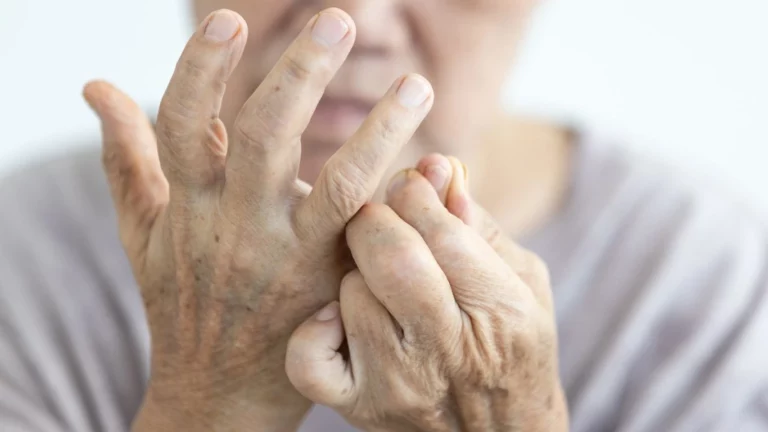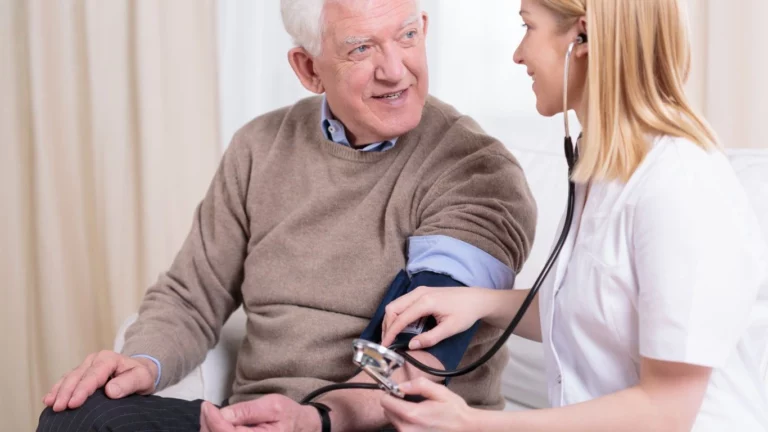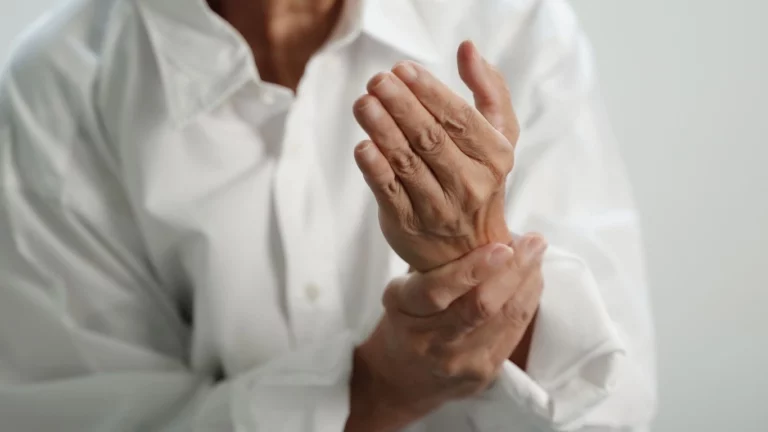High Blood Pressure and Dizziness When Standing: Warning Signs & Fixes
Ever felt a sudden rush of dizziness when standing? You’re not alone. As a hypertension specialist, I’ve seen countless patients baffled by this unsettling sensation. It’s frustrating, isn’t it? One minute you’re sitting comfortably, and the next, your head spins like you’ve just stepped off a rollercoaster. The culprit? More often than not, high blood pressure plays a significant role. But here’s the thing—most people don’t connect the dots. Let’s break it down together.
Why Does High Blood Pressure Cause Dizziness When Standing?
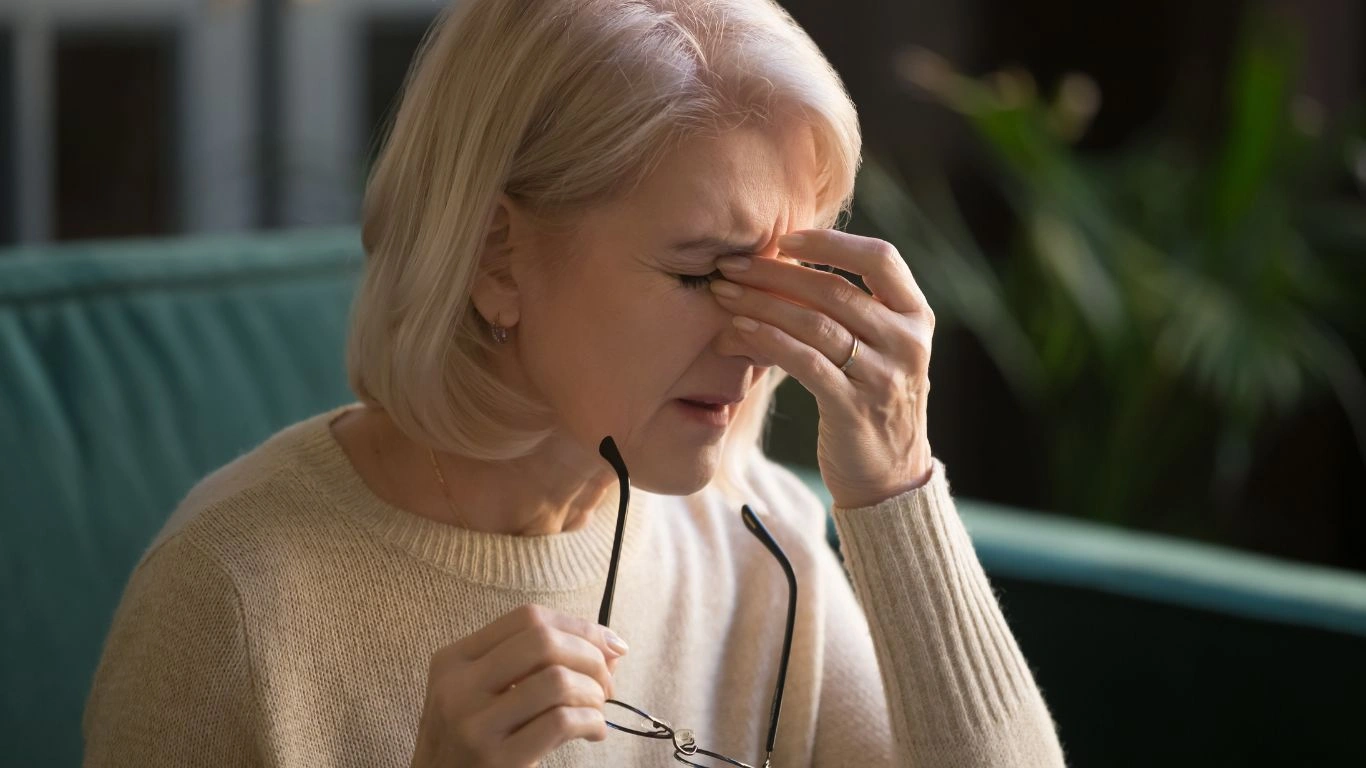
First things first, let’s clear up a common misconception—high blood pressure itself doesn’t directly cause dizziness. Surprised? I get this question all the time. The real issue often lies in how your body regulates blood flow when you move from sitting to standing. If your blood pressure is poorly controlled, your circulatory system struggles to keep up, making you feel lightheaded or unsteady.
Orthostatic Hypotension: The Unexpected Link
Ever heard of orthostatic hypotension? It’s when your blood pressure drops too much when you stand up. Now, you might be thinking, “Wait, I have high blood pressure—why is it dropping?” Well, it’s all about regulation. If your body can’t adjust quickly enough, your brain gets temporarily starved of oxygen-rich blood, leading to that woozy, floating feeling.
Medication Side Effects
Here’s something I’ve personally noticed with my patients—many of them experience dizziness not from the hypertension itself, but from the very meds meant to treat it. Beta-blockers, diuretics, and ACE inhibitors can sometimes lower blood pressure too much, especially when you stand up suddenly.
- Diuretics: Reduce fluid retention but can lower blood volume.
- Beta-blockers: Slow your heart rate, which can lead to momentary dizziness.
- ACE inhibitors: Expand blood vessels, sometimes causing sudden drops in pressure.
If you’re noticing dizziness, it might be time to chat with your doctor about adjusting your meds.
Recognizing the Symptoms: It’s More Than Just Feeling Lightheaded

So, what exactly does dizziness from high blood pressure feel like? Some of my patients describe it as a brief blackout moment, while others say it’s like being on a swaying boat. Pay attention to these warning signs:
- Feeling faint when getting up too fast.
- Blurry vision for a few seconds after standing.
- Weakness or sudden fatigue.
- Head rush that fades after a few moments.
These aren’t just annoying—over time, they can increase the risk of falls, especially for older adults. I always remind my patients: if you’re frequently dizzy, don’t ignore it. Your body is trying to tell you something.
How to Prevent Dizziness When Standing
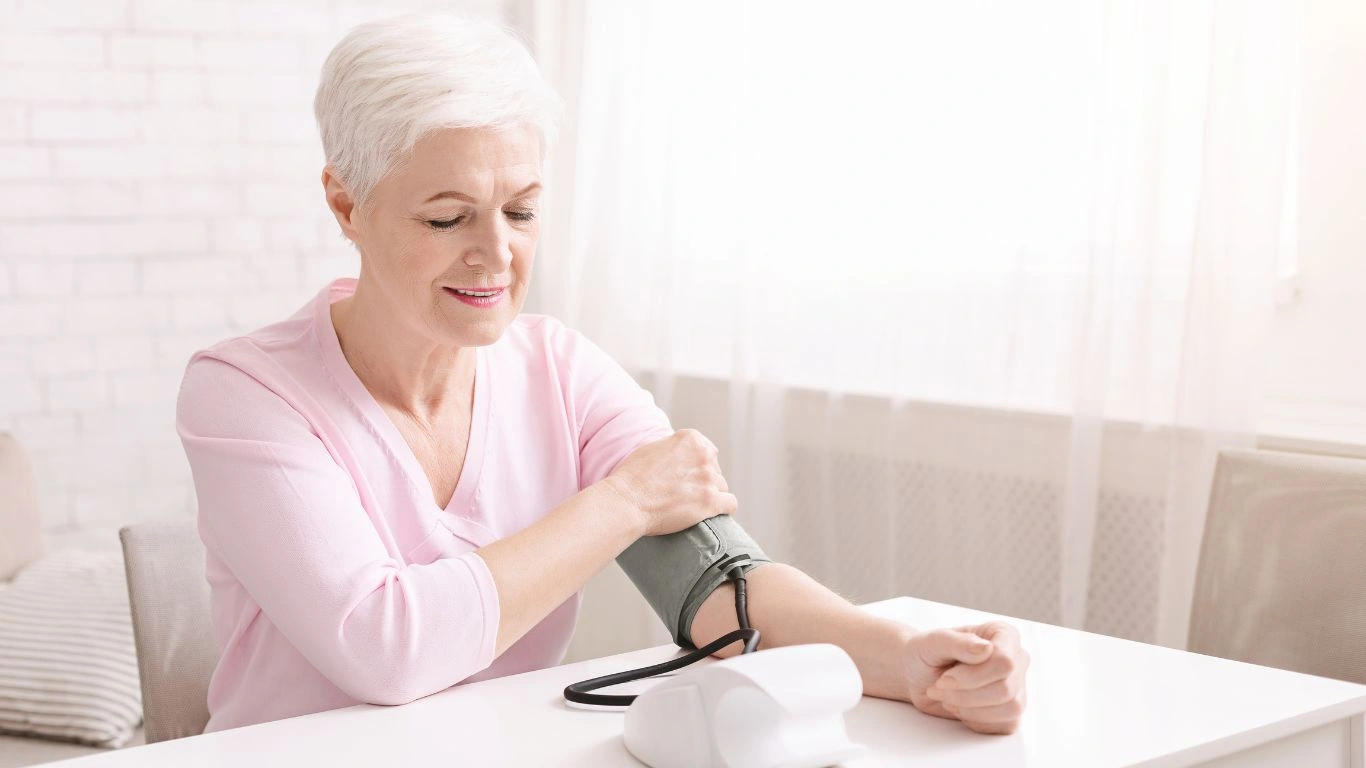
Let’s talk solutions! If you’re dealing with high blood pressure and dizziness when standing, here are a few simple but effective strategies that I always recommend:
1. Stand Up Slowly
This might sound too simple, but trust me, it works. Instead of jumping up from a seated or lying position, take a few seconds to let your body adjust. This gives your circulatory system a chance to catch up.
2. Stay Hydrated
Dehydration can make blood pressure dips worse. Aim to drink plenty of water throughout the day—your brain (and your balance) will thank you!
3. Adjust Your Medications
If your dizziness is persistent, talk to your doctor about adjusting your prescription. Sometimes, a small tweak can make a huge difference.
4. Increase Salt Intake (If Safe)
Now, this one’s tricky. Normally, we tell people with high blood pressure to reduce salt. But if you’re experiencing dizziness from low blood pressure dips, a slight increase in sodium (under medical guidance) might help.
Still feeling wobbly? Don’t worry—we’ve got more to discuss. Let’s dive deeper into managing these symptoms in a way that fits your lifestyle.
When Should You Be Concerned About Dizziness and High Blood Pressure?

Now, occasional dizziness might just be an inconvenience, but if it’s happening frequently, it’s time to take a closer look. Over the years, I’ve had patients brush off these symptoms as “just getting older” or “a bit of dehydration,” only to later discover that something more serious was at play.
Red Flags You Shouldn’t Ignore
So, how do you know when dizziness is a minor nuisance versus a sign of something more serious? Here are a few warning signs that should send you straight to your doctor:
- Frequent dizziness that disrupts your daily activities.
- Severe dizziness accompanied by chest pain, shortness of breath, or heart palpitations.
- Fainting or blacking out after standing up.
- Nausea or vomiting along with dizziness.
- Loss of balance leading to falls or near-falls.
If any of these sound familiar, don’t ignore them. Your body is waving a red flag, and it’s always better to catch a potential problem early rather than wait for it to escalate.
The Role of Diet in Managing Dizziness and Blood Pressure

One of the first things I tell my patients struggling with high blood pressure and dizziness when standing is this—what you eat matters. Big time. The right diet can stabilize your blood pressure and reduce dizziness episodes, while the wrong one can make things worse.
Foods That Help Regulate Blood Pressure
If you’re dealing with dizziness related to hypertension, adding these foods to your diet can make a noticeable difference:
- Leafy Greens – Rich in potassium, which helps balance sodium levels and regulate blood pressure.
- Beets – High in nitrates, which help improve blood flow and prevent sudden drops in pressure.
- Bananas – A great source of potassium to keep blood pressure stable.
- Whole Grains – Oats, quinoa, and brown rice support heart health and circulation.
- Fatty Fish – Omega-3s in salmon and mackerel help improve overall blood flow.
Incorporating these foods into your meals can help prevent drastic blood pressure fluctuations and reduce dizziness episodes.
Foods to Avoid
On the flip side, some foods can make your symptoms worse. If you’re experiencing frequent dizziness, try to limit:
- High-sodium foods – Too much salt can cause blood pressure spikes, followed by sudden drops.
- Excess caffeine – While a cup of coffee is fine, too much can dehydrate you and make dizziness worse.
- Processed foods – These often contain hidden sodium and preservatives that disrupt blood pressure balance.
- Alcohol – Can lead to dehydration and blood pressure fluctuations.
It’s not about completely cutting these out but rather being mindful of how much you consume. A balanced diet is key to keeping your blood pressure—and dizziness—under control.
How Lifestyle Changes Can Reduce Dizziness
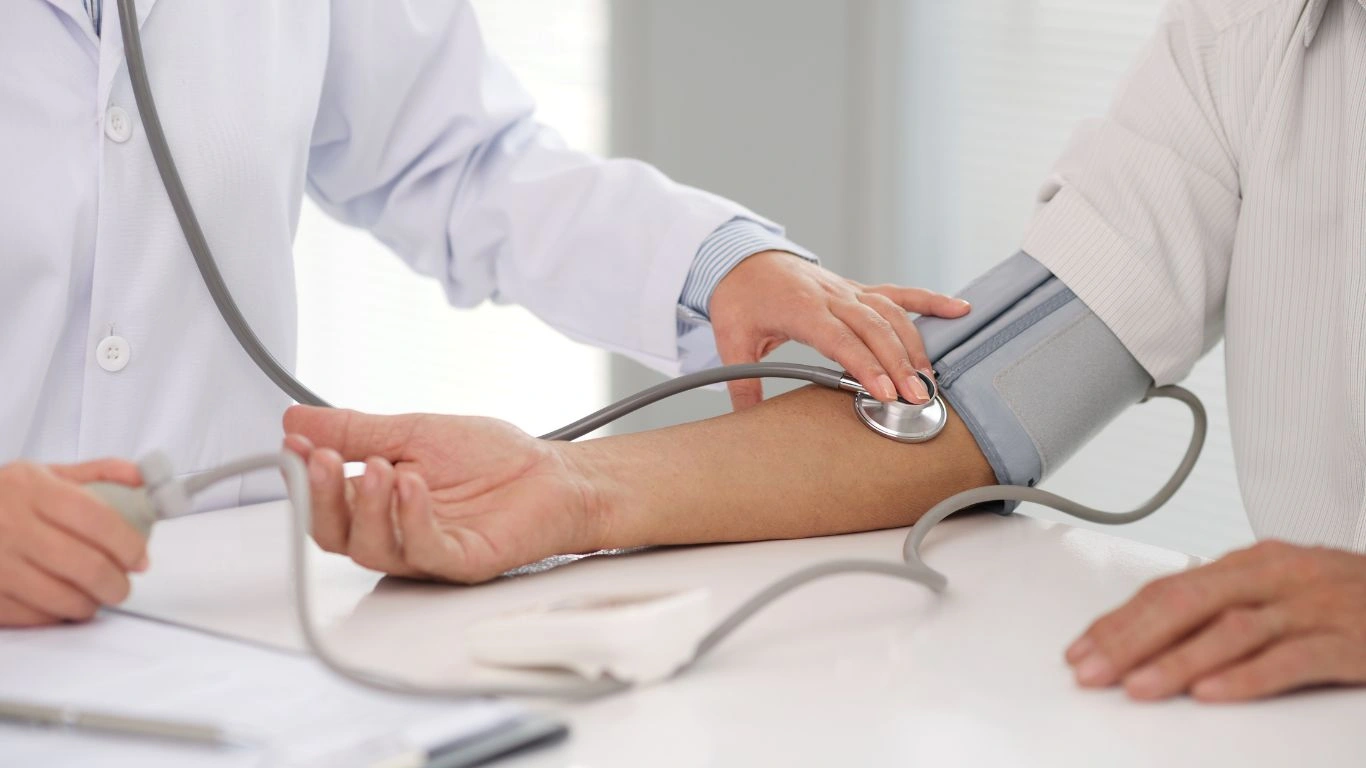
Managing high blood pressure and dizziness isn’t just about medication and diet. Simple lifestyle adjustments can make a world of difference.
1. Regular Exercise (But the Right Kind)
One of the best ways to improve blood circulation is to stay active. But here’s the catch—if you’re dealing with dizziness, certain exercises might make it worse. I always recommend starting with:
- Walking – Gentle on the body, great for circulation.
- Swimming – Reduces strain on joints while improving cardiovascular health.
- Seated exercises – If standing makes you dizzy, try resistance band workouts while seated.
- Yoga and stretching – Helps with balance and prevents sudden blood pressure drops.
Avoid sudden, high-intensity workouts if they trigger dizziness. Gradually build up your endurance and pay attention to how your body reacts.
2. Managing Stress Levels
Stress is a silent contributor to hypertension. If you’re constantly feeling on edge, your blood pressure can become erratic, leading to more dizziness episodes. Try these relaxation techniques:
- Deep breathing exercises – Helps lower blood pressure naturally.
- Mindfulness meditation – Reduces anxiety and stabilizes blood pressure.
- Journaling – Writing down worries can help clear mental clutter.
- Listening to calming music – Can help regulate stress hormones.
Stress management is just as important as diet and medication when it comes to controlling blood pressure and dizziness.
3. Hydration: The Simplest Fix
Sometimes, the solution is as simple as drinking more water. Dehydration can cause blood pressure dips, making dizziness worse. I always tell my patients to aim for at least 8-10 glasses of water per day, more if they’re active.
Keeping a refillable water bottle nearby makes it easier to stay hydrated throughout the day. If you’re not a fan of plain water, try herbal teas or add a splash of lemon for flavor.
Dizziness and high blood pressure might feel overwhelming, but with the right adjustments, it’s entirely manageable. There’s more to uncover, and I’ll walk you through additional strategies to regain stability and take control of your health.
How to Monitor Blood Pressure and Prevent Dizziness Episodes

One of the most effective ways to manage high blood pressure and dizziness when standing is by keeping a close eye on your numbers. Trust me, I’ve seen many patients assume their blood pressure is “fine” simply because they feel okay most of the time. But the truth is, hypertension can be sneaky, and without regular monitoring, you might not catch sudden spikes or dips that contribute to dizziness.
Best Practices for Monitoring Your Blood Pressure
Checking your blood pressure at home isn’t just for people with severe hypertension—it’s a smart habit for anyone dealing with blood pressure-related symptoms. Here’s how to do it the right way:
- Use a validated home blood pressure monitor – Wrist monitors aren’t as reliable as upper-arm ones.
- Measure at the same time each day – Morning and evening readings help track trends.
- Stay seated and relaxed – Sit quietly for five minutes before taking a reading.
- Avoid caffeine or exercise before checking – These can temporarily raise your numbers.
- Keep a log – Write down readings or use an app to track fluctuations.
Monitoring helps identify patterns. If you notice a big drop when standing, it might be time to discuss medication adjustments with your doctor.
Medical Treatments for High Blood Pressure and Dizziness
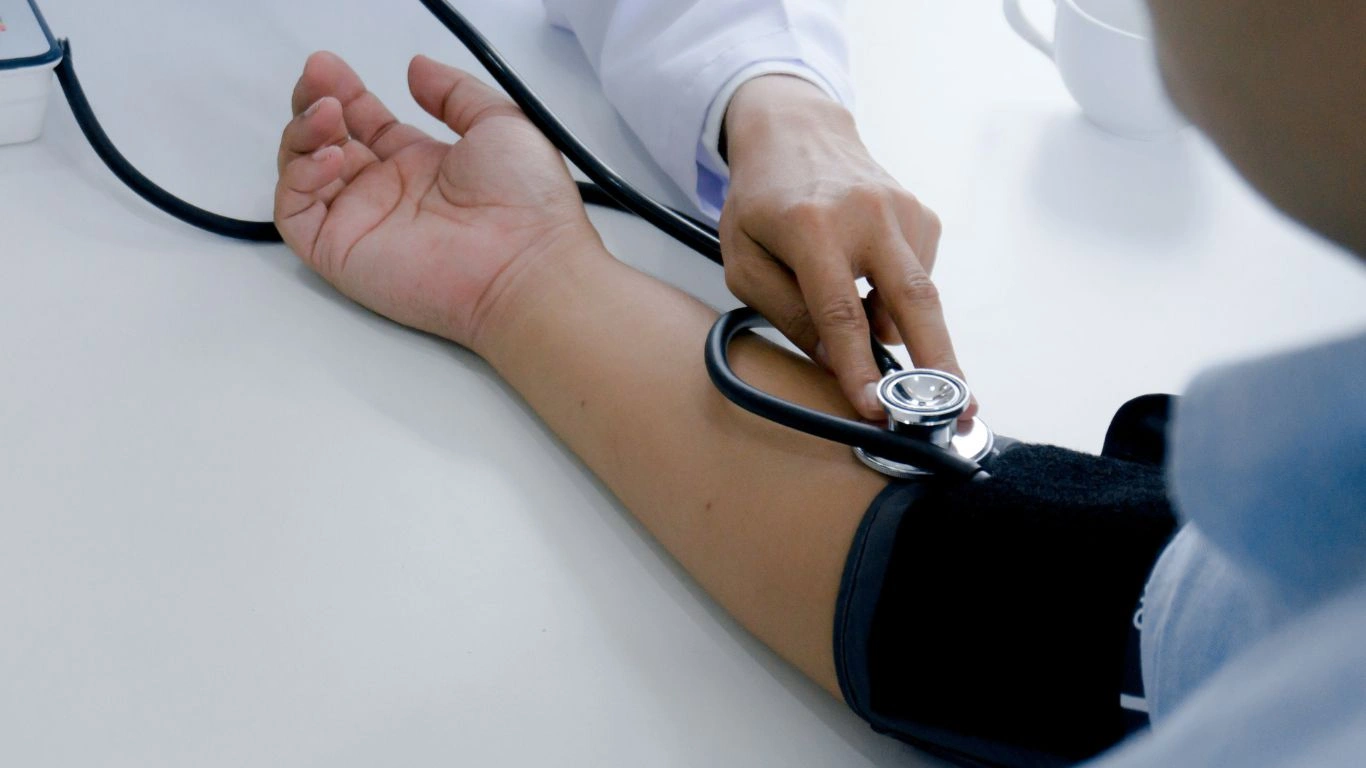
While lifestyle changes can go a long way, some cases of dizziness related to hypertension require medical intervention. I always tell my patients: don’t hesitate to seek help. If your symptoms persist despite home remedies, your doctor may explore the following options.
Medication Adjustments
Not all blood pressure medications work the same way for everyone. Some patients find that their meds lower their blood pressure too much when they stand up, leading to dizziness. In such cases, your doctor may:
- Switch medications – Certain drugs, like calcium channel blockers, may be a better fit.
- Adjust dosage – A lower dose might control hypertension without causing lightheadedness.
- Change timing – Taking meds at night instead of the morning can sometimes help.
Compression Stockings
For those experiencing dizziness due to blood pooling in the legs (a common issue with blood pressure dips), compression stockings can be a game changer. They help maintain circulation and prevent sudden drops in blood pressure when standing.
IV Fluids and Electrolyte Support
In more severe cases, especially for patients dealing with severe dehydration or electrolyte imbalances, IV fluids might be necessary. This is typically done in a hospital setting for those experiencing extreme dizziness or fainting episodes.
Frequently Asked Questions About High Blood Pressure and Dizziness
1. Can high blood pressure itself cause dizziness?
Not directly. High blood pressure usually doesn’t cause dizziness unless it leads to complications like hypertensive crises or poor circulation control when standing.
2. What’s the difference between dizziness and vertigo?
Dizziness is a feeling of lightheadedness or instability, whereas vertigo makes you feel like the room is spinning. If you’re experiencing vertigo, it could be related to an inner ear issue rather than blood pressure.
3. Should I be worried if my dizziness is only occasional?
Occasional dizziness isn’t always a cause for concern, but if it’s frequent or severe, it’s best to discuss it with your doctor. Keeping a symptom diary can help identify patterns.
Absolutely. Dehydration can cause blood pressure to drop suddenly when you stand up, leading to dizziness. Staying hydrated is one of the simplest ways to prevent these episodes.
5. What’s the best position to relieve dizziness?
If you feel dizzy, sit or lie down immediately. Elevating your legs slightly can help improve circulation and stabilize blood pressure.
Final Thoughts on Managing High Blood Pressure and Dizziness
Dealing with high blood pressure and dizziness when standing can be frustrating, but the good news is that it’s manageable. Through a combination of lifestyle changes, proper hydration, medication adjustments, and regular monitoring, you can significantly reduce dizziness episodes and regain control over your daily life.
My advice? Don’t ignore your symptoms. The sooner you take action, the better your chances of maintaining stable blood pressure and avoiding complications.
References
Disclaimer
This article is for informational purposes only and does not constitute medical advice. Always consult a healthcare professional before making changes to your medication, diet, or exercise routine.

Dr. Gwenna Aazee is a board-certified Internal Medicine Physician with a special focus on hypertension management, chronic disease prevention, and patient education. With years of experience in both clinical practice and medical writing, she’s passionate about turning evidence-based medicine into accessible, actionable advice. Through her work at Healthusias.com, Dr. Aazee empowers readers to take charge of their health with confidence and clarity. Off the clock, she enjoys deep dives into nutrition research, long walks with her rescue pup, and simplifying medical jargon one article at a time.

